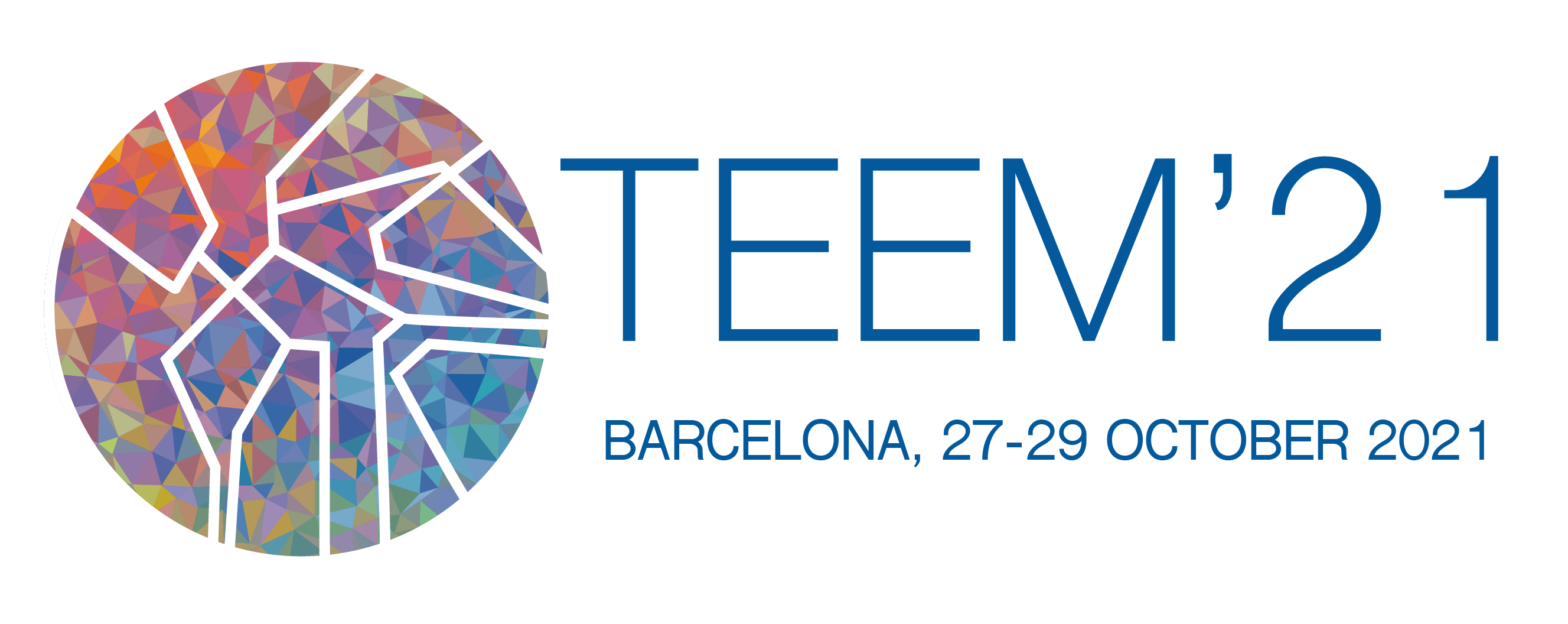Presentation
The information era, along with the technologisation process, makes it difficult to avoid the use of technological devices and the hyperconnectivity that they entail. This reality is transforming our ways of thinking and communicating making an impact on the scenarios where subjects carry out their own identity configuration and development. Digitality has given access to a new social space-time of coexistence, communication and culture, and as a consequence of the hyperconnected actions and interactions, this new era is changing the patterns of development and construction of personal identities as a consequence of hyperconnected actions and interactions. From a neutral position, we consider that technologies are neither intrinsically liberating nor completely trap or enslave us, but depend on our thoughts and uses. In this line, this track aims to study the processes of construction, destruction and re-construction of the digital self, the OnLife self and its externalization and public, and / or private manifestation, in a hypertechnological society, characterized by an apparent need to always be accompanied, to always be entertained, to be submissive and to tell everything. We are looking for proposals that make the ways in which people’s identity can be configured more visible, as the basis for socialization, enculturation, relationship, and education, analyzing the different variables that mediate these processes.
Topics
- New learning ecosystems
- Training processes in virtual environments
- Learning and virtual environments
- Blended Learning as digital learning methodology
- Identity construction in a hypertechnological world
- Digital identity and elderly
- Online vs. Offline learning processes
- Contexts, mechanisms of constructing human experience
Track instructions and Program (Thursday 28th, VIRTUAL, 15.30-17.00, local time, Support place B: Class 3.4, floor 3)
The track will be managed in virtual mode. Papers should be presented online or on video. Each author will have 10 minutes for the presentation of the work and 5 minutes for discussion. If you prefer, you can also present your work in the live session of the conference in the zoom call we will all be taking part of by sharing in your screen the video you already recorded.
The presentation of the works, both the slides and the speech, could be in Spanish or English.
The order will be:
- ID 28: Onlife selfhood and intrinsic characteristics of digital technologies: an educational approach
- ID 63: Analysis of the type of prevalence of social network use by adolescents by age and gender
- ID 73: Digital identity and elderly
- ID 81: Institutional direction on the use of mobile devices in hyperconnected educational contexts
- ID 104: Two-step verification in the teaching / learning process
Track Scientific Committee
José Manuel Muñoz-Rodríguez (University of Salamanca, Spain) – Chair
Teresa Pessoa (Universidade de Coimbra, Portugal) – Chair
Judith Martin Lucas (University of Salamanca, Spain) – Chair
Tania Alonso Sainz (Universidad Autónoma de Madrid, Spain)
Francisco Esteban Bara (Universidad de Barcelona, Spain)
Fernando Gil Cantero (Universidad Complutense de Madrid, Spain)
Juan García Gutiérrez (Universidad Nacional de Educación a distancia, Spain)
Natália Fernandes Gomes (Instituto Politécnico de Guarda, Portugal)
Luis Guilherme Augsburger (Universidade do Estado de Santa Catarina, Brazil)
María José Hernández Serrano (Universidad de Salamanca, Spain)
Mª María del Mar Lorenzo Moledo (Universidad de Santiago de Compostela, Spain)
Maria Jose Martins (Universidade de Portoalegre, Brazil)
Luciano Carlos Mendes de Freitas Filho (Universidade Federal do Rio de Janeiro, Brazil)
Cristina Mesuita (Instituto Politécnico de Bragança, Portugal)
María do Rosário Pinheiro (Universidade de Coimbra, Portugal)
Alberto Sánchez Rojo (Universidad Complutense de Madrid, Spain)
Sara Serrate González (Universidad de Salamanca, Spain)
Trevor Spratt (Trinity College Dublin, Ireland)
Bianca Thoilliez Ruano (Universidad Autónoma de Madrid, Spain)
Eduardo Vila Merino (Universidad de Málaga, Spain)
Bárbara Mariana Gutiérrez Pérez (Universidad de Salamanca, Spain)
Alicia Murciano Hueso (Universidad de Salamanca, Spain)
